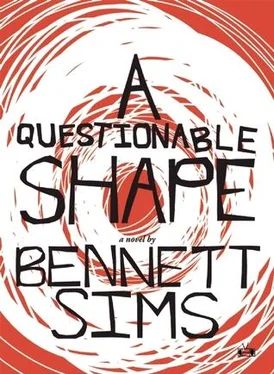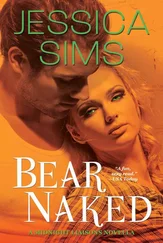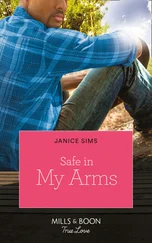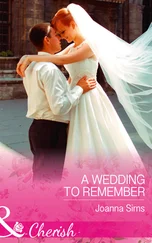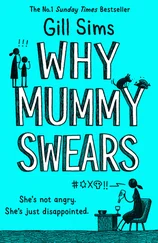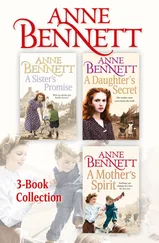Matt sees me staring: ‘You’re looking at me like a starving person. Why don’t you order something?’ ‘Do you know how nervous it makes me just to watch you eat? I’m not going to order a dish of infected food for myself. With a side of infection. And who knows what in the water, which probably it’s not even bottled, just straight from the tap.’ ‘Not even the tap: squeezed fresh from an infected’s lesions.’ I cringe. I’m remembering the footage of this one Youtube video, in which the wounds and pustules along an infected’s skin dehisce from sunburn — there is a runny yellowness like yolk. Mazoch regards me skeptically: ‘Not even dessert?’ ‘Confections?’ I say, allowing for a beat: ‘More like in fections.’ ‘Very good, Vermaelen.’ ‘I mean, I’m exaggerating, but what a dumb risk.’ ‘Yeah, I’m a real daredevil. It’s like, I’m such an Evel Knievel, of eating chicken breast and rice, I’m not even wearing a condom right now.’
I, who engage daily in sessions of unprotected sex with Rachel, appreciate that my armchair mysophobia is at some level an overreaction. The chicken meat would, after all, have been well cooked, and the infection itself (of which basically nothing has been empirically verified: not whether it can be transmitted across species, or even whether animals, which are universally asymptomatic, can in fact serve as carriers at all) could probably still be assumed to sizzle and be sterilized in a frying pan. Even the bit about the tap water was merely rhetorical. While FIGHT THE BITE strongly discourages drinking anything other than bottled or boiled water, and while FEMA has supplied citizens with aluminum cans boldly and majuscularly labeled FILTERED DRINKING WATER, there have been no reports, so far as I know, of the contamination of wells by infected effluent. Yet it would be as meaningless as an aggregate of spit on the surface of his ice water, or as meaningless as blood let from a minor wound into food handled by an ungloved hand, for a kind of absence to uncoil in Mazoch by the end of the week. Even assuming that he could trust a line cook or a server not to intentionally infect his meal, 35there’s no accounting for ignorance, or carelessness. Mazoch knows all of this. I don’t understand what’s gotten into him. Eating chicken now, after a month of packed lunches? It reeks of ‘He had a week left till retirement,’ a kind of fate-baiting self-endangerment and heedless hamartia. It’s like he’s daring the infection to infect him.
But by far the dumber risk is that we’re even inside right now. Although the diner is empty of other customers, there’s still the staff on hand: our waitress; a police officer stationed as security; some cooks. Paradoxically, the presence of the officer has the effect of making me feel less safe. He’s just one more body to reanimate. Any person in this room — if not all of them — could drop to the floor at any moment, and begin to reanimate. Then it would be like that food-court footage all over again, in which a single person manages to spark a mass outbreak. And if it were Mazoch who reanimated today — going limp in his booth, twitching in revivification — there would be only three feet of the formica of the tabletop separating him from me. As he sprawled across it, clutching at me with his thewy hands, I would have to fend him off, fend off his huge strength, for as long as I could, until the officer a few booths over rushed here to restrain him. Assuming, that is, that the officer himself hadn’t already reanimated. I look over Matt’s broad shoulder toward the officer’s booth, trying to make out whether the man has ordered or eaten anything since he’s been here, but all I can see is the back of the seat opposite him.
When the waitress returns to take Mazoch’s plate, she offers him a laminated dessert menu, and he props it on the table so that I can see its centerfold photographs of brownies. Such a menu as the devil might have shown Jesus in the desert, each brownie stage-lit and provocatively angled, glinting in places throughout its morsel moisture and the deep obscene brownness of its glaze. Mazoch must be able to tell by my expression that I’m little tempted: ‘You know we’re talking a thousandth decimal place? What are the chances,’ he asks, emphasizing the word ‘chances,’ ‘that one brownie or one piece of chicken, from this diner, this afternoon, is going to infect either of us?’ ‘In my case, no chance,’ I answer, ‘because I refuse to order anything.’ ‘Suit yourself,’ he says.
I remind him that he still hasn’t answered my question, about where he’d want to find his father, and he folds the dessert menu down on the table. ‘I know where I wouldn’t want to find him,’ he says. ‘I do too,’ I say. ‘Feeding, right?’ When we first discussed this, toward the beginning of the search, I asked Matt whether he was ever afraid of finding Mr. Mazoch. And he confided in me that there were certain scenarios that kept him up at night. He would never want to find Mr. Mazoch feeding, he said: to see him crouched over his victim, hands rooting inside an opened stomach, the ribs pried and the long guts unspooled, and to hear the sloppy wetness of his chewing; for his father to turn back, looking over his shoulder, and for the man to be unrecognizable by the cloudiness of his eyes, so vacant, wide, and white, and by the blood, too, smeared carelessly across his mouth, as by a child’s finger-painting hand. Even worse than finding his father feeding, he said, would be to find him at the moment when, having fed too much, his undigesting stomach burst: to see him lying helpless in a ditch, his legs and arms rotating futilely, like an upturned beetle’s, around the scene of his unseamed belly, the gore steaming in the grass where it spilled, and his mouth giving terribly of froth, a white flow down either side, as if vomiting moonlight. These and like places, these and like positions, Mazoch would prefer not to find his father in, he told me. They belong only to the undead, are images that the undead have introduced. 36Better to see his father shrouded in some illusion of humanity — better to find him brushing, out of habit, his teeth, or standing peacefully above his bed — than to see him utterly transformed by undeath, feeding as only they feed, dismembered and atwitch as only they can be. Or at least these were Mazoch’s sentiments the last time that we discussed this. 37
So I’m surprised today to hear him give a different answer: ‘Where I wouldn’t want to find him,’ he says, ‘is at his elementary school, or high school, or another childhood place. Places that predate me and his fatherhood.’ Not out of vanity or some need to be remembered, he explains, as if he should be the figure who looms largest in his father’s memory, and whose apartment it is that the man should return to in undeath. But even to find him at the antiques mall, or his house in Denham, would be better than finding him in more ancient neighborhoods. At least then he’d be returning to portions of his life that Matt understood of him: he’d still be making sense of himself, in some way, as a father (as related to Matt), rather than as a son, returning to his own father’s home but otherwise… unattached. ‘Does that make sense?’ he asks. It does, and I tell him so. In fact, I am momentarily relieved to hear him say it. Because if Matt prefers to think of his father’s corpse as a father, to find it in a fatherly space, then he can’t possibly be intending to kill it. Could he? He must want — as Rachel did with her own father — nothing more than to rescue Mr. Mazoch. See him safely to a quarantine. Hence the strong emotional incentives Matt has for believing (or for making himself believe) that it is ‘his father’ he is saving. If his plan really were to put Mr. Mazoch down, then all the emotional incentives would have to be running in the opposite direction. Wouldn’t they? Assuming that he seriously intended to one day swing a bat into his father’s body, Matt would almost certainly prefer to dissociate that body from the idea of his father, to reject any recognition of Mr. Mazoch there. Baseball bat in hand, Matt would need to think himself to the point at which his father was not his father. In which case a ‘childhood site’ or an ‘ancient neighborhood’—a place devoid of paternal associations — would be exactly where Matt would want to find him. Somewhere that he could regard him as a stranger.
Читать дальше
